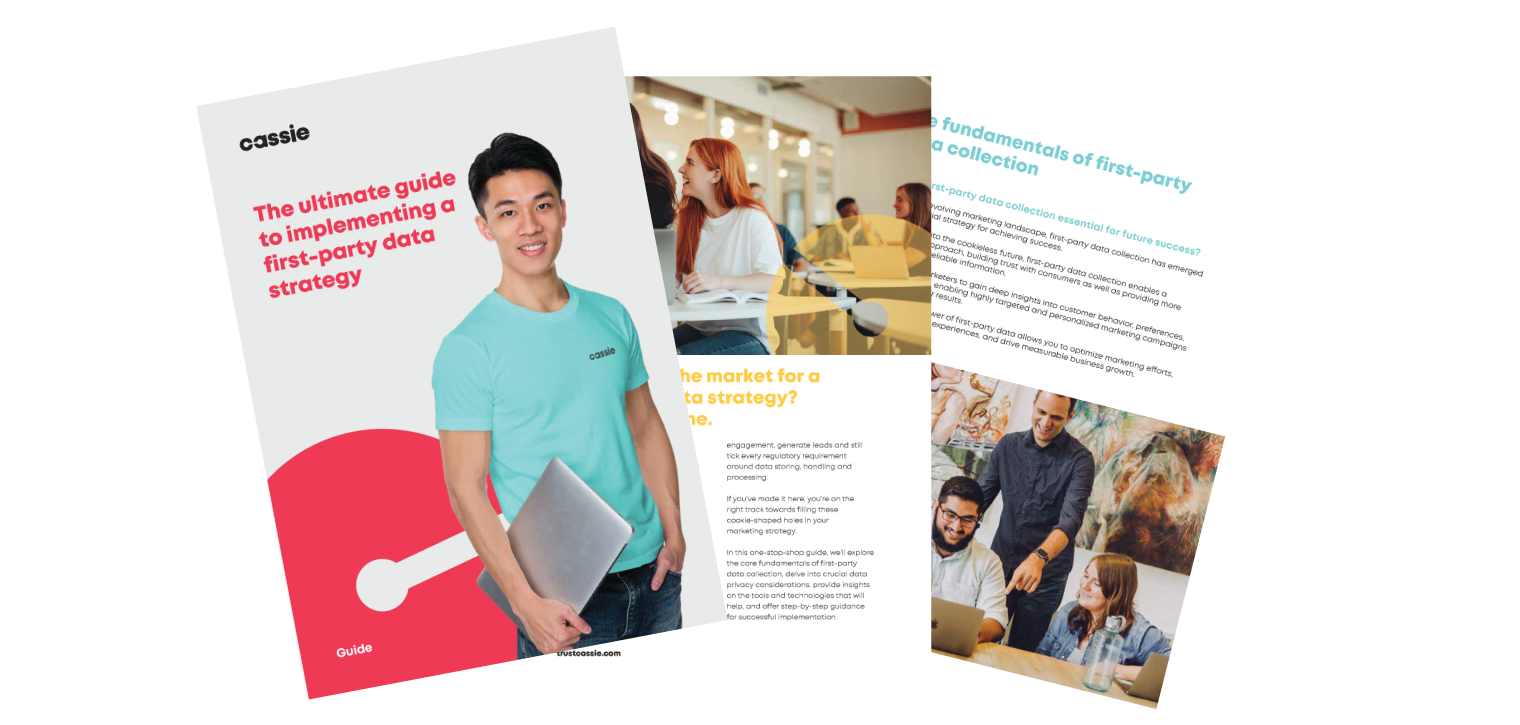Insights from MarTech Summit panel
Unlocking ROI from first-party data
Data is one of the most valuable currencies in the world.
In fact, around 5 years ago, the phrase ‘data is more valuable than oil’ was being thrown around.
Data can be used to create new revenue streams, improve customer experiences, and increase operational efficiency.
But data comes with many challenges and obstacles. To be able to truly get value from data as a business, you need to consent to use that data and ideally you need to collect first-party data.
And there are plenty of benefits when it comes to first-party data.
It allows for enhanced personalization, enabling companies to create tailored marketing campaigns that boost customer engagement and conversion rates.
It’s more cost-effective than purchasing third-party data, helping to reduce overall marketing expenses.
Plus, using first-party data ensures better compliance with data privacy regulations and builds customer trust through transparent data practices.
At the recent MarTech Summit, industry leaders delved into the nuances of consent monetization and its pivotal role in maximizing return on investment (ROI) when combined with first-party data collection.
The discussion highlighted the importance of trust, transparency, and strategic planning in leveraging customer data effectively.
The panel:
- Jennifer Allen, Senior Product Manager, MarTech, CV-Library
- Douglas Sheard, Consumer Engagement Lead, UK Hygiene, Reckitt
- Hazem EL Taha, Global Head of Marketing Technology, HSBC
- Tom Parsley, Principal, Credera
- Nicky Watson, Founder & Chief Architect, Cassie
Here are the key takeaways…
Understanding consent monetization
Our founder, Nicky Watson, wanted to be clear: the term ‘consent monetization’ is not about selling data.
It’s about using customer consent to collect and utilize data in ways that benefit both the business and the customer.
This approach enhances customer relationships and drives significant business impact. Proper consent management can lead to improved customer engagement and higher ROI by enabling personalized marketing and superior customer experiences.
Key strategies for effective consent management
Building trust and transparency
Customer trust: Transparency is crucial. Customers must understand how their data is collected and used, and the benefits they receive in return. This builds trust and encourages data sharing.
Internal education: It’s essential to educate internal stakeholders about the value of consent and data privacy. This ensures buy-in and compliance across the organization.
Personalization and customer engagement
Personalized services: Utilizing first-party data to offer personalized services can significantly enhance customer satisfaction and loyalty.
Innovations in data use: Advanced technologies, such as AI, can be leveraged to analyze and utilize data for personalized customer interactions, driving deeper engagement. However, you need consent in order to train LLM’s on your customer data.
Overcoming challenges
Data collection in offline sales: For industries with significant offline sales, collecting first-party data can be challenging. Developing strategies to bridge this gap is essential.
Regulatory compliance: Navigating various regulations across regions and ensuring data security and compliance is a continuous effort that requires strategic planning.
Common pitfalls and solutions
Internal buy-in: The panelists highlight a need for internal education to gain buy-in from senior stakeholders. Without this, efforts to leverage first-party data can stall.
Avoid making consent a box-ticking exercise: Many organizations fall into the trap of treating consent management as a mere compliance exercise. It’s crucial to get everyone excited about the potential benefits of getting it right and ensure they understand the implications of getting it wrong.
No budget or resources: The panel also stressed the importance of securing a suitable budget before getting too far into the process and working with marketing to craft compelling messages for internal stakeholders.
Practical applications and future directions
Consent management platforms: Implementing dynamic consent management platforms is crucial. These tools must handle complex data requirements and ensure regulatory compliance.
Long-term planning: Developing a comprehensive roadmap for data use that aligns with business goals and anticipates future regulatory changes is vital.
Customer-centric approach: Always prioritize the customer’s perspective. Ensure that data practices enhance their experience and build trust in your brand.
The panel underscored that successful consent monetization hinges on a strategic approach that integrates trust, transparency, and innovation.
By focusing on these elements, businesses can unlock substantial value from their first-party data, fostering better customer relationships and achieving improved ROI.
